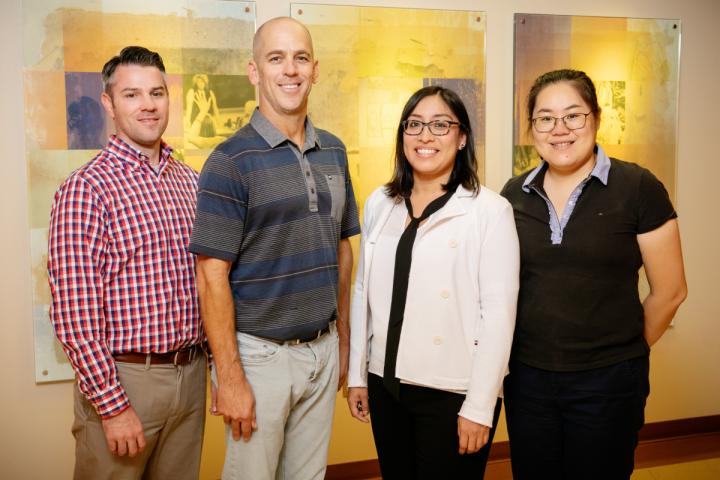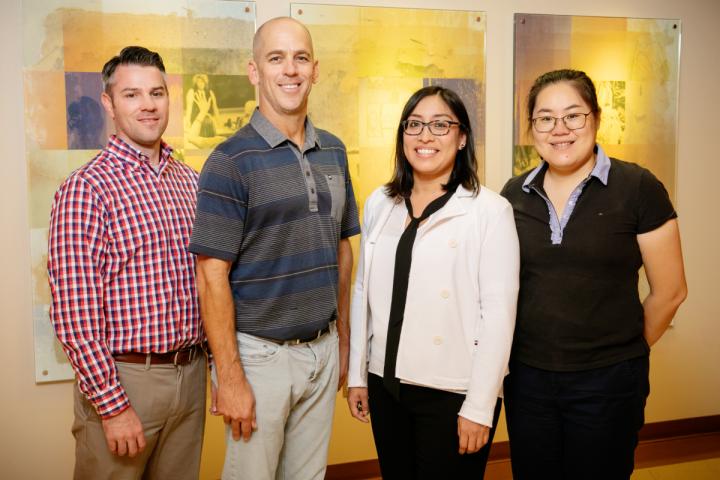
Credit: Photo by L. Brian Stauffer
CHAMPAIGN, Ill. — Kidney dialysis patients who engage in technology-based positive psychology exercises during their treatments may significantly improve their depressive symptoms and quality of life, a new study found.
Patients with depression who used tablet computers to complete brief positive psychology exercises online several times a week scored lower on depressive symptoms and reported that they felt better able to cope with their kidney disease by the end of the five-week pilot study, led by University of Illinois social work professor Rosalba Hernandez.
During their scheduled dialysis treatments, patients logged on to the study's website to watch videos, read material and complete exercises that promoted psychological well-being and resilience. The 20-30-minute modules explored topics such as identifying and building on one's personal strengths, cultivating gratitude and using positive reappraisal to reinterpret events.
On average, patients who completed the study visited the positive psychology website more than three times a week. In the first module each week, patients were introduced to a new skill and on subsequent days practiced that skill or made plans to incorporate it into their daily life.
"Hemodialysis patients are a vulnerable population with compromised health, and effective treatment of depressive symptoms can dramatically improve their quality of life, and reduce their morbidity and mortality," Hernandez said.
Studies have found that as many as one-third of kidney dialysis patients experience depression, which is associated with decreased adherence to prescription medications, poorer survival rates and a host of other negative outcomes. Comorbid depression considerably exacerbates kidney disease progression, increases systemic inflammation and compromises cellular immunity, according to the current study.
Positive psychology interventions that promote attributes such as gratitude, optimism and emotional vitality have helped alleviate depressive symptoms in patients with other chronic illnesses, including heart disease, diabetes and HIV, according to Hernandez and her co-authors.
"In the past, medications have been the preferred treatment strategy for hemodialysis patients who experience depression," Hernandez said. "However, the typical dialysis patient in the U.S. is already taking as many as 12 prescription medications daily, so many health care providers and patients are reluctant to add yet another medication to their regimen and heighten their pill burden."
Of the 12 participants who completed the program, the majority said they found the exercises useful in helping them cope with their kidney disease. Participants' scores on the depressive symptoms assessment decreased significantly at the end of the trial, while their scores on quality of life, emotional well-being, physical vigor and social interactions improved.
Patients in the current study, which was published recently by the journal Social Work in Health Care, had been attending dialysis treatment three times a week for more than three years on average when they participated in the intervention.
"Many patients experience boredom during their dialysis sessions, which can last up to four hours each," Hernandez said. "Patients are a captive audience during their dialysis sessions, so using a tablet computer to read the material on the website, watch the videos and participate in the positive psychology exercises can help distract them from the monotony of dialysis and promote healthful adherence with the treatments."
Five of the eight prior clinical trials that explored the use of psychosocial interventions for hemodialysis patients with comorbid depression used cognitive behavioral therapy that was provided in face-to-face sessions with clinicians, according to the current study. However, behavioral health interventions delivered online or through mobile apps have been found to be as effective as traditional face-to-face therapy and can be accessible to larger numbers of users, according to Hernandez and her co-authors.
While the sample size in the current study was small, Hernandez said "the results offer preliminary evidence that psychosocial interventions are viable alternatives to the current overreliance on prescription drugs for hemodialysis patients. Our study confirms the feasibility and acceptability of an internet-based positive psychological intervention, which demonstrated significant improvements in patients' depressive symptomatology over a five-week period."
###
Hernandez's co-authors included U. of I. kinesiology and community health professor Kenneth Wilund; Judith T. Moskowitz, a professor of medical social sciences at Northwestern University; and Michael Cohn, a professor at the Osher Center for Integrative Medicine at the University of California. U. of I. graduate students Brett Burrows and Shuo Xu also co-wrote the study.
Media Contact
Sharita Forrest
[email protected]
217-417-0754
@NewsAtIllinois
http://www.illinois.edu
Original Source
https://news.illinois.edu/view/6367/703704 http://dx.doi.org/10.1080/009813989.2018.1523268





